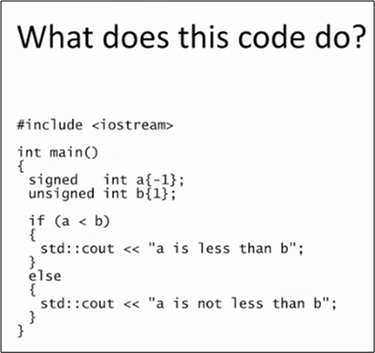Randomizing a CSV File with Standard C++
A blogpost on how I randomized the student selection for Meeting C++ 2016
Randomizing a CSV File with Standard C++
by Jens Weller
From the article:
For this years student program I had to come up with a way to randomly select n students from all applicants. I wanted to do this in a clean and nice C++ program. So here it is...

